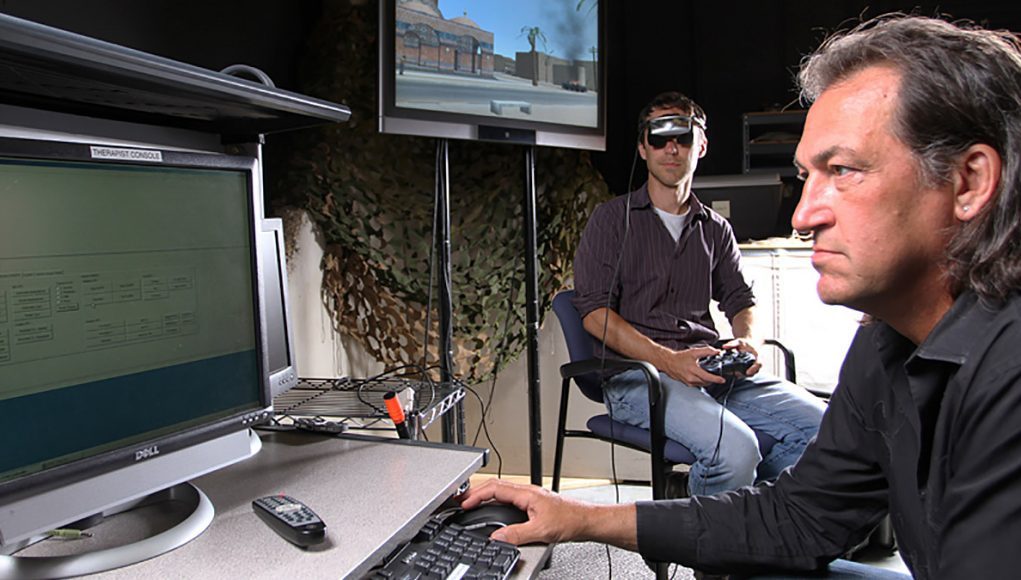 Dr. Skip Rizzo heads the Medical VR Research Group at USC’s Institute for Creative Technologies, which has been exploring how to use VR for psychological treatments, cognitive assessment, motor rehabilitation therapy, as well as interactions with virtual humans. He’s been on the forefront of using virtual reality to treat soldiers with post-traumatic stress disorder with virtual exposure therapy.
Dr. Skip Rizzo heads the Medical VR Research Group at USC’s Institute for Creative Technologies, which has been exploring how to use VR for psychological treatments, cognitive assessment, motor rehabilitation therapy, as well as interactions with virtual humans. He’s been on the forefront of using virtual reality to treat soldiers with post-traumatic stress disorder with virtual exposure therapy.
LISTEN TO THE VOICES OF VR PODCAST
VR is used to incrementally trigger an embodied sensory experience in PTSD patients by placing soldiers within the virtual sights, sounds, feelings, and smells of common combat scenarios in Iraq and Afghanistan. This virtual exposure therapy stimulates the original embodied experience of traumatic events for soldiers so that they can connect to specific details of their memories so that they can engage in cognitive restructuring by telling the story of their experience. Rizzo says that a key component of healing from PTSD is if the patient is able to connect to the underlying emotions of the experience while sharing the narrative of their experience, and that this can unlock a cascade of healing effects that USC has been able to measure over the years.
I had a chance to try out a demo of the VR PTSD Exposure Therapy project during a reception at USC ICT during the IEEE VR 2017 conference in Los Angeles in March, and was struck by their holistic multi-modal approach of using subwoofers, smells, and passive haptic guns. I caught up with Dr. Rizzo to talk about his work in using VR to heal from PTSD, the importance of storytelling and emotional presence, and their future work in expanding treatment scenarios for victims of Military Sexual Trauma, and moving into civilian trauma with first-responders like police and firemen.
He also talked about an episodic, interactive storytelling experience that will be like an emotional obstacle course of navigating different traumatic scenarios with the help of a virtual human that is helps guide the patient through the cultivation of coping skills for stress management, mindfulness techniques, and cognitive reappraisal. This work at USC ICT shows that immersive virtual environments can stimulate a deep sense of embodied and emotional presence that has vast healing potential that goes well beyond just the gaming and entertainment applications.
More:
Support Voices of VR
- Subscribe on iTunes
- Donate to the Voices of VR Podcast Patreon
Music: Fatality & Summer Trip







